Potty training a puppy is one of the first things you’ll need to do as a new dog owner. And while it may seem like a daunting task, it doesn’t have to be! With a little patience and consistency, you’ll have your pup potty trained in no time. Here’s what you need to know.
How Long Does It Take To Potty Train A Puppy?
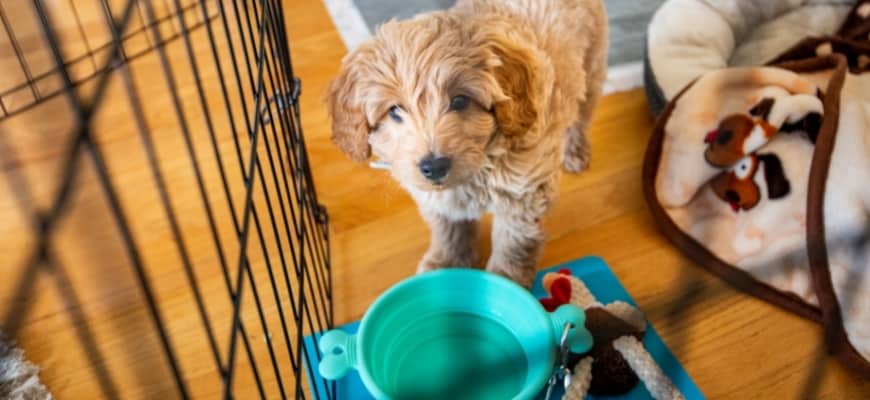
Now for the question you’ve all been waiting for: how long does it typically take to potty train a puppy? Unfortunately, there’s no one-size-fits-all answer to this question—every puppy is different and will learn at their own pace. However, most puppies will be fully trained within 3-6 months with a consistent effort from their owners right from the start.
Dos and Don’ts of Potty Training
The Dos of Potty Training
First things first: what should you do when potty training your puppy? Here are a few key tips:
- Put them on a predictable schedule and take them out regularly. Take them out first thing in the morning, after every meal, and before bedtime.
- Reward them with high-value treats or praise whenever they go outside. This will help reinforce positive behavior.
- Establish a regular potty spot and take them there at consistent times. Once they get used to going in that spot, it will be easier for them to learn where they should (and shouldn’t) be going.
- Be patient! Puppies have small bladders and can’t hold it for very long. You’ll get through the house training process, eventually.
The Don’ts of Potty Training
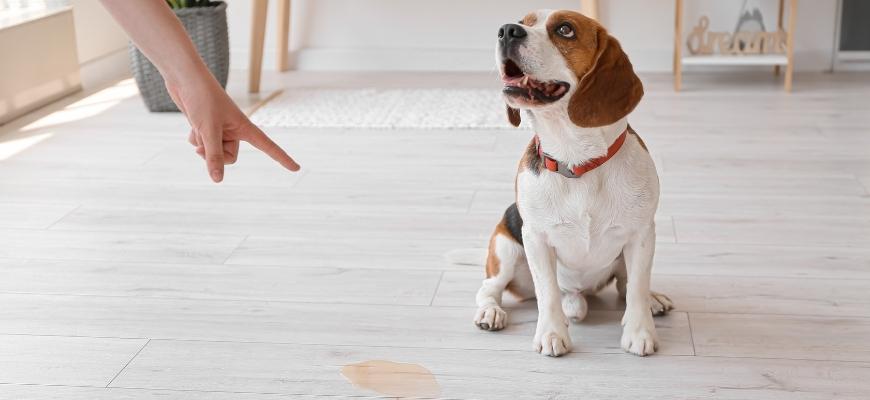
Besides knowing what you should do when potty training your puppy, it’s also important to know what you shouldn’t do. Avoid these common mistakes:
- Yelling or punishing them if they have an accident inside. This will only scare or confuse them. Instead, remain calm and focus on rewarding them when they go outside.
- Leaving them alone for long periods of time without taking them out. Like we said before, puppies have small bladders and can’t hold it for very long. If you leave them alone for too long, they’re bound to have an accident somewhere in the house.
- Getting frustrated with the process. Potty training takes time and patience—but we promise it’ll be worth it in the end!
FAQs
One of the first things you need to do when you get a new puppy is housebreak them. But what is the hardest dog to potty train? And are puppy pee pads a good idea? Let’s find out.
What is the hardest dog to potty train?
Most experts agree that the harder breeds to potty train are smaller breeds, as they have more of a chance to sneak off and potty somewhere without you noticing. These dogs can be very stubborn and will require a lot of patience and persistence to potty train.
Luckily, there are some things you can do to make the process easier. Crate training can be helpful for dogs as it gives them a safe place to stay when they’re not being supervised.
Which dog breed is easiest to potty train?
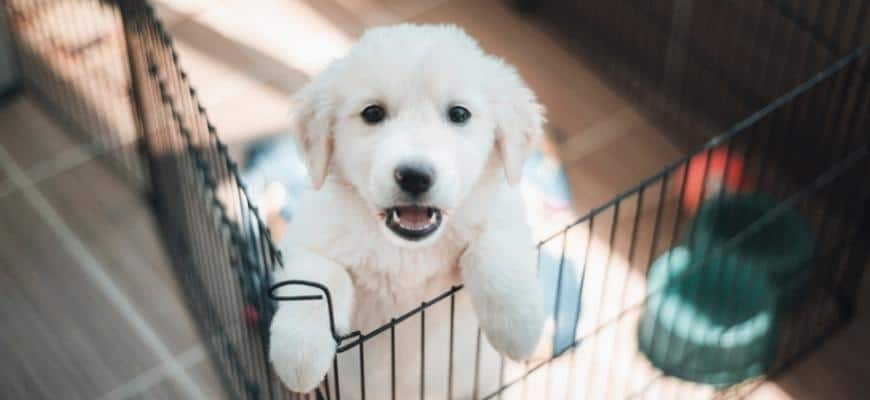
On the other hand, there are some breeds that are much easier to potty train. These include Poodles, Golden Retrievers, Labrador Retrievers, and Yorkies. These breeds are typically very intelligent and eager to please their owners, making them quick learners for potty training. Crate training can still be helpful for these dogs, but it is often unnecessary.
Are puppy pee pads a good idea?
Puppy pee pads can be a good option for potty training if you live in an apartment or don’t have access to a yard. However, it’s important to know that not all dogs take to them well. Dogs that are more resistant to potty training may see the pads as just another place to relieve themselves, rather than understanding that they’re only meant to use them when they’re indoors.
If you decide to use puppy pee pads, it’s important to phase them out as your dog becomes more reliable with going outside. This means gradually moving the pads closer and closer to the door until your dog is using them right next door to where you want them going when they need to relieve themselves.
At what age are most puppies housebroken?
Most puppies will be housebroken by around six months of age. However, this will vary depending on the breed of dog and how well they respond to training. Some dogs may take longer, while others may be housebroken in just a few weeks. The key is patience and consistency; if you keep at it, your puppy will eventually learn where they’re supposed to go!
Potty Training In 7 Days
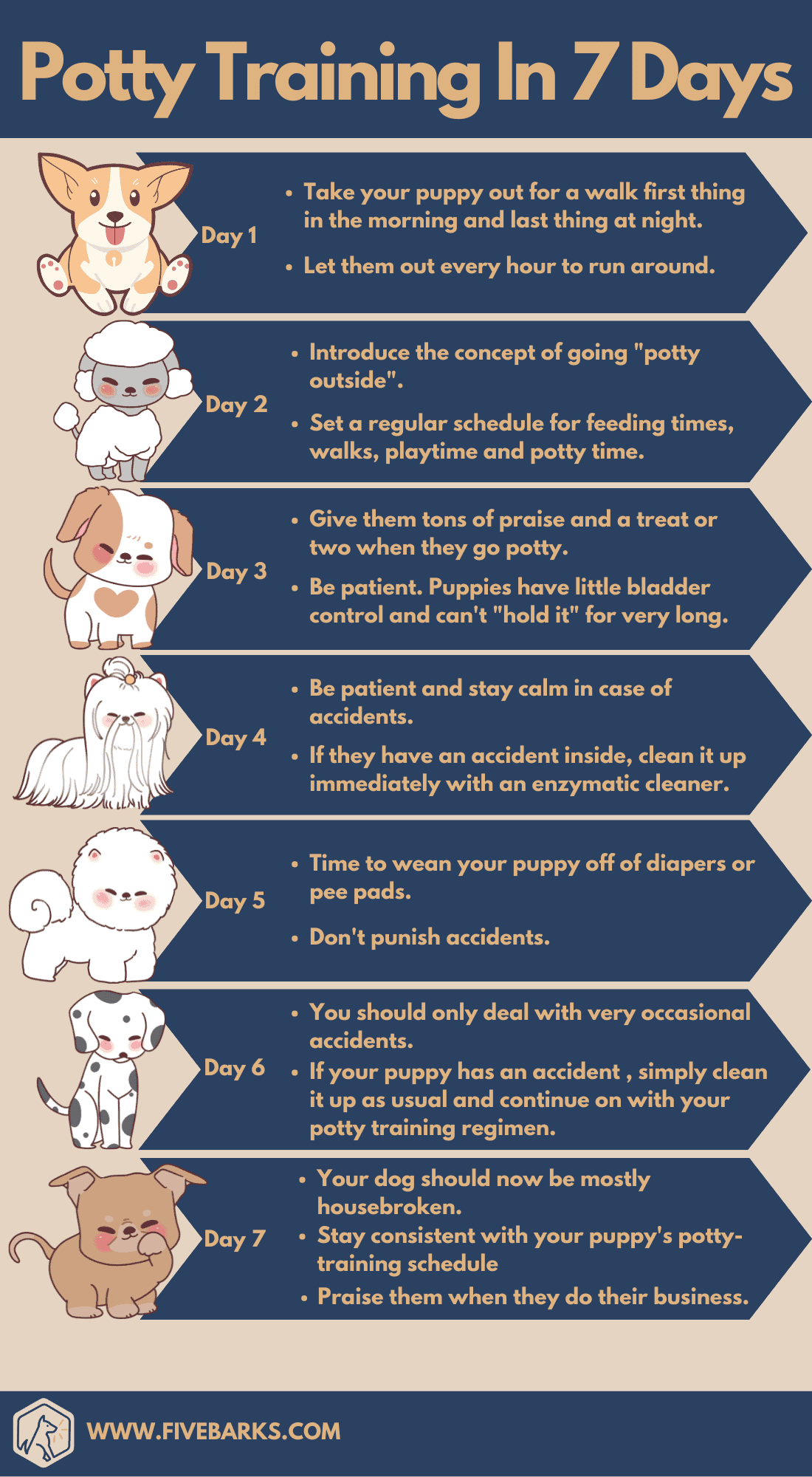
Here are a few tips on a training schedule to get them potty trained in a week:
Day 1
The first day is all about getting to know each other and establishing routines. Take your puppy out for a walk first thing in the morning and last thing at night. During the day, let them out every hour to run around and burn off some energy. I’ve found establishing a regular potty schedule from the get-go will make things easier in the long run.
Choose a designated potty spot. It’s helpful to take your puppy to the same spot every time to do their business. This will help them learn that this is the place they should go when they need to go potty.
Day 2
Now that you’ve gotten into a routine, it’s time to introduce the concept of going potty outside. Every time you take your puppy out, bring them to the same spot in the yard and say “go potty.” Eventually, they’ll catch on that this is where they should do their business.
Set a regular schedule. Feeding times, walks, and playtime should all happen at roughly the same time each day. This will help your puppy learn when they can expect to go out to do their business. Especially make sure to take them out a few hours before bedtime after dinner, and then again right before bed.
Day 3
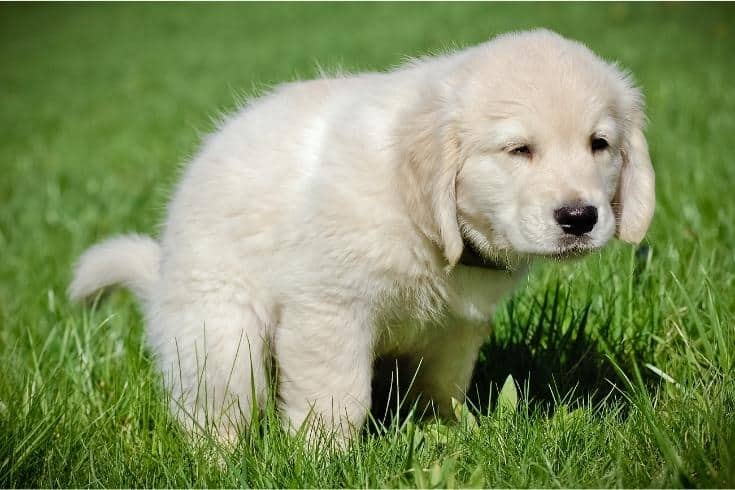
Today is all about positive reinforcement. When your puppy goes potty outside, give them tons of praise and a treat or two. They need to know that they’re doing something right!
Be patient. Puppies have little bladder control and can’t “hold it” for very long. So, accidents are bound to happen—especially in the beginning. Just be patient and clean up any accidents with an enzymatic cleaner (not vinegar or ammonia, which will only make the problem worse).
Day 4
By now, hopefully, your puppy is getting the hang of things and will potty on command outside, but accidents are bound to happen. If they have an accident inside, clean it up immediately with an enzymatic cleaner. And above all else, stay calm—getting angry will only make things worse.
Reward good behavior. Whenever your puppy goes potty in their spot, give them lots of praise, just as you have been doing this entire time, and maybe a healthy treat! This will reinforce behaviors you want to see, making potty training that much easier.
Day 5
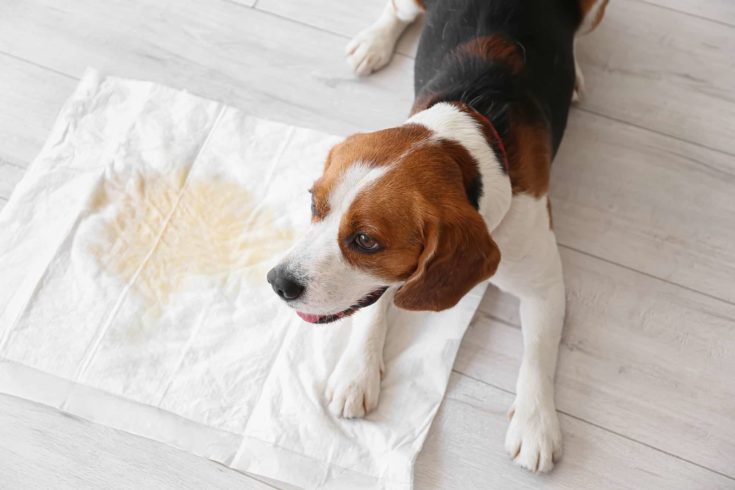
Today is a big day—it’s time to wean your puppy off of diapers or pee pads. To do this, simply remove one diaper or pad each day until there are none left if you’ve been using them to start potty training. This process might take a few days or even a week or two, so be patient!
Don’t punish accidents. Yelling or hitting your puppy will only scare them and make them less likely to want to use the bathroom in front of you. If they have an accident, just calmly clean it up and move on—they’ll get it, eventually!
Day 6
You should only deal with very occasional accidents unless there are some underlying health issues. If your puppy has an accident inside, simply clean it up as usual with paper towels and continue on with your potty training regimen. Remember, Rome wasn’t built in a day!
Be consistent. The most important thing you can do when potty training your puppy is to be consistent with your rules and expectations. If everyone in the family is on the same page, potty training will go much more smoothly!
Day 7
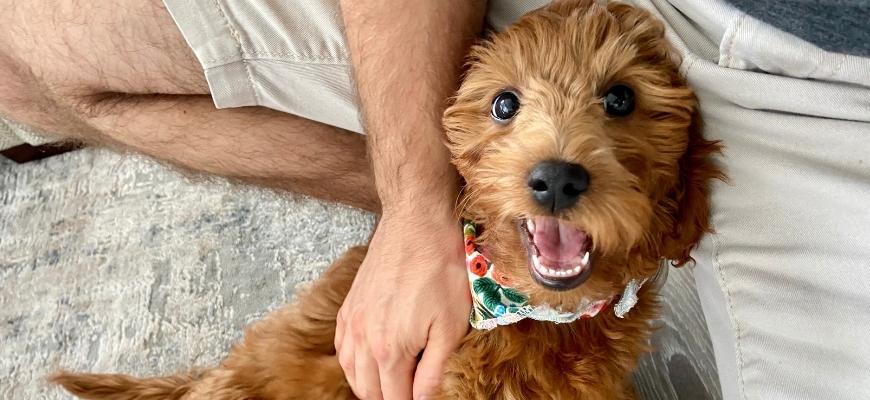
Congratulations! You’ve made it through one entire week of potty training! Your dog should now be mostly housebroken, though there may still be the occasional accident here or there. Just stay consistent with your puppy’s potty-training schedule and praise them when they do their business outside and everything should fall into place eventually.
Conclusion
Potty training a puppy may seem like a daunting task, but it doesn’t have to be! With a little patience and consistency, your pup will be potty trained in no time flat. Just remember to choose a proper potty spot, set a regular schedule, be patient, reward good behavior, don’t punish accidents, and be consistent with your rules and expectations—and you’ll be well on your way!
